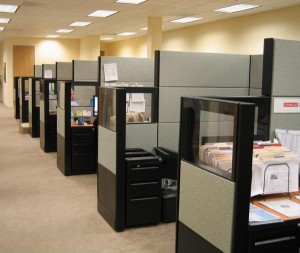 It’s quite common for small business and entrepreneurs looking for office space for the first time to go about things in a backwards, and often foolish way. Owners and decision makers often make several key mistakes that can end up costing them significantly down the line and can even cripple their growth rate. Because office rent is the second highest expense that the vast majority of companies incur, doing things the wrong way leading up to signing on the dotted line can be devastating, especially for a young company or start up.
It’s quite common for small business and entrepreneurs looking for office space for the first time to go about things in a backwards, and often foolish way. Owners and decision makers often make several key mistakes that can end up costing them significantly down the line and can even cripple their growth rate. Because office rent is the second highest expense that the vast majority of companies incur, doing things the wrong way leading up to signing on the dotted line can be devastating, especially for a young company or start up.
Here are some of the key mistakes that are made:
1. Impulse Decisions
Renting space for a business is a huge decision, not only financially but emotionally as well. We spend over one half of our waking lives at our work place, so it’s paramount to pick the most suitable space, building, and location. This is not something that should be decided on over the course of an hour or even a day, so prospective tenants must leave emotion at the door when they tour spaces and avoid being “wooed” by landlord agents’ attempts to close you on the spot.
2. Solely Relying On Listings
It’s very easy to simply Google “office space in city X” and view several sites, which contain nothing more than available space listings. While listings are a decent teaser and a good way to gauge the market on a high level, the information provided with each listing is not only inadequate, it’s also frequently widely inaccurate. Landlords want nothing more than for a business owner to view a listing, go directly to the property, and give the leasing agent the opportunity do everything they can to convince him/her that they need to sign a lease TODAY in their building, to get locked into a fantastic deal.
3. Flying Solo
Lease term flexibility and lease complexity can vary depending on the size and type of space, but it’s typically never a good idea to attempt to sign a lease for anything greater than 2000 square feet without using a good tenant broker. There are usually thousands of available space options, tons of lease clauses, and many other variables to consider that there’s no way someone without a commercial real estate background will be able to make the most informed decision possible for their business space needs. Tenant brokers represent YOU (the tenant) and only you. The good brokers are market experts who not only do all the heavy lifting, but are also trained in negotiating the most favorable lease terms for their clients. The landlord, not the tenant, pays their fees! With all of the other somewhat hidden costs that are present within a commercial real estate lease, having a tenant broker can typically save the tenant up to 25% of the total value of the lease.
4. Procrastinating
It’s typically advisable to begin searching for space no later than 6 months prior to estimated move in date, if possible. It’s important to get a good lay of the land, see different spaces, and gauge where the market is. Like anything else in life, preparation always pays off in the end, and in this case, it can end up saving the business owner/operator thousands of dollars.
5. Going At It Cold
Do some research. Business owners need to get a good idea on the fundamentals of leasing commercial space before they start looking around so they can be somewhat dangerous. Prospective tenants need to understand who the players are, what the pitfalls can be, and how the process works before they start honing in on signing a lease. Small business owners make uninformed decisions about leasing space every day, and it can literally crush their company.
Renting office, retail, or warehouse space is a big decision for any small business owner or operator. Understanding all of your options and how the process works will make the prospective tenant an informed consumer. More often than not having representation is a good idea too. Prospects need to make sure they take the right first steps in the process so that they won’t get burned later on.
Justin Lee is a licensed commercial real estate broker with experience in commercial property leasing and development. He along with 2 other co founders launched TheSquareFoot.com with the goal of making the space leasing process more digestible for small business owners and entrepreneurs. Follow them on twitter @TheSqFtHouston.




